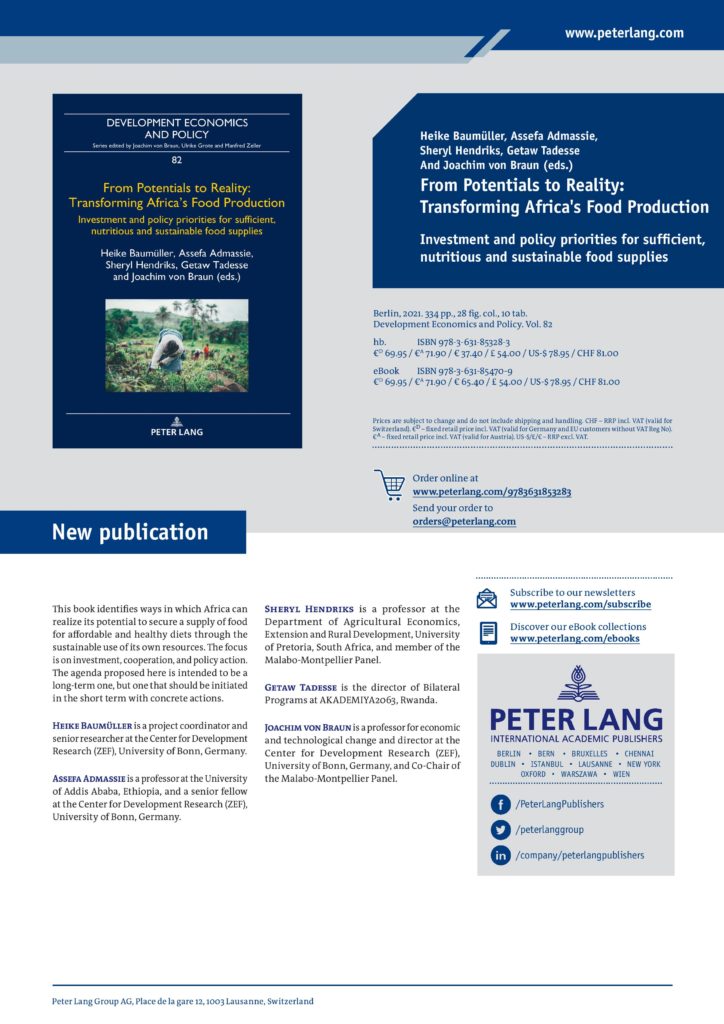The aim of this study is to identify how Africa may transform its potentials into realities and actually secure its supply of food for affordable and healthy diets from the sustainable use of resources. The focus is on investment, cooperation and policy actions. The study distinguishes between systemic and sector-specific investments and actions. Systemic actions and investments cut across the whole food and agricultural system and include economy wide policies and governance; specific sub-sector actions and investments enhance productivity in crops, animal production, processing and natural resource management.
Key priorities identified in the study include:
- Invest in young women and men, i.e. vocational training and extension services, to improve skills for all core and support professions along the entire value chain.
- Invest in innovation and related agricultural research on crops, animal production, agro-forestry and fisheries.
- Support the producer and local private sector-led development and adoption of environmentally sustainable small-scale irrigation, rural energy, digitalization and mechanization of production.
- Implement sustainable land use, integrated, science-based agroforestry practices and incentive-based conservation, and agro-ecological approaches.
- Invest in mobile connectivity of rural areas and across Africa as a perquisite for digital tools to be widely and effectively used in the food and agriculture sector.
- Improve market access through rural infrastructure investments, and facilitate the participation of small-scale producers and small businesses in inclusive local and continental value chains, and the opportunities of the African Continental Free Trade Area.
- Provide suitable frameworks and finance for the agro-processing sector, and invest in technological innovations to reduce food losses and waste, in particular on the farm and in the early stages of processing.
- Improve the financial infrastructure and regulatory frameworks for agricultural banking to facilitate investments by small-scale producers and small businesses, including micro-finance.
- Implement policy interventions that improve the business environment for agriculture, reduce corruption, build peace and stability among farmers and herders, and ensure strong representation of farmers’ organizations in food and agriculture policy.
- Align development support to Africa’s own agricultural transformation agenda, at continental level, i.e. the African Union Agenda 2063 with the Malabo Declaration, and at country levels, and sustain and expand development assistance in the above-mentioned priority areas for agriculture development and food security.
https://doi.org/10.48565/bonndoc-4 (English)
Also published as a book in the Development Economics and Policy Series of Peter Lang:

